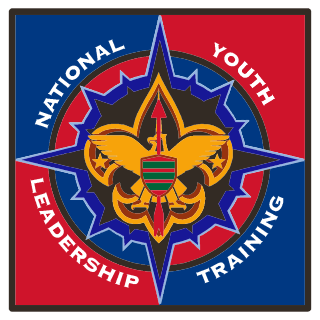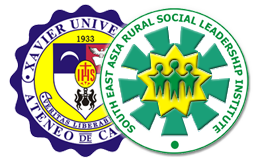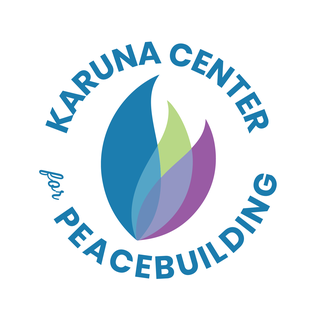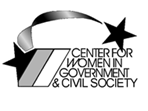
Student affairs, student support, or student services is the department or division of services and support for student success at institutions of higher education to enhance student growth and development. People who work in this field are known as student affairs educators, student affairs practitioners, or student affairs professionals. These student affairs practitioners work to provide services and support for students and drive student learning outside of the classroom at institutions of higher education.
A T-group or training group is a form of group training where participants learn about themselves through their interaction with each other. They use feedback, problem solving, and role play to gain insights into themselves, others, and groups.

National Youth Leadership Training, often called NYLT, is the current youth leadership development training offered by the Boy Scouts of America. The program is conducted at the council level over six days for Scouts, Venturers, and Sea Scouts. The program has been open to all genders since 2010. This training is a part of the national organization's leadership training program and is designed to mirror themes found in Woodbadge, which is the BSA program for adult leadership training.

OCA-Asian Pacific American Advocates is a non-profit organization founded in 1973, whose stated mission is to advance the social, political, and economic well-being of Asian Americans and Pacific Islanders (AAPIs) in the United States.

The Sierra Student Coalition (SSC) is the national student chapter of the Sierra Club, a grassroots environmental organization. Founded by Adam Werbach in 1991, it now has about 14,000 members and is almost entirely student-led. The SSC is led by Executive Director Ben Jealous.

The Southeast Asia Rural Social Leadership Institute (SEARSOLIN) is one of the research and social outreach units of Xavier University – Ateneo de Cagayan, located in Cagayan de Oro, Philippines.
NAFSA: Association of International Educators is a non-profit professional organization for professionals in all areas of international education including education abroad advising and administration, international student advising, campus internationalization, admissions, outreach, overseas advising, and English as a Second Language (ESL) administration. As of 2010, it served approximately 10,000 educators worldwide, representing nearly 3,000 higher education institutions.
The Alliance Graduate School (AGS) is an inter-denominational Evangelical Christian graduate school of theology in Quezon City, Philippines, housed together with Philippine Alliance College of Theology (PACT). It was established in 1977. It is affiliated with the Christian and Missionary Alliance Churches of the Philippines.
Public Achievement is an "initiative" of the Center for Democracy and Citizenship at Augsburg University. It involves young people working in teams on a public works project of their choice. An adult coach, typically a teacher or university student trained in the process and concepts of Public Achievement, guides team members through the following stages: exploration and discovery; issue selection and development; problem research; designing a project; implementing the action plan and making the work visible; and celebrating. Throughout the process, the coach holds team members accountable, and creates space for reflection and opportunities for each team member to practice and refine their civic skills. The coach makes overt connections between the group’s work and civic and political concepts. Ideally, an experienced PA site coordinator provides mentoring and assists PA coaches in reflecting on their own learning.
The Virginia Center for Inclusive Communities (VCIC) is a non-profit organization that works to reduce prejudice in schools, businesses, and communities. Its activities include workshops, retreats, and customized training and education programs. VCIC also trains leaders to promote inclusion. VCIC's programs and services have been recognized by local and national organizations.

The California Association of Student Councils (CASC) is a non-profit, student-led youth leadership and advocacy organization. Founded in 1947 by the California Department of Education and the Association of California School Administrators, CASC has provided a multitude of conferences to students, advisors, and professionals in both California and around the world.

Karuna Center for Peacebuilding (KCP) is a 501(c)(3) non-profit organization based in Amherst, Massachusetts. The stated mission of KCP is to empower people divided by conflict to develop mutual understanding and to create sustainable peace. The organization was named for the Sanskrit word for compassion. The organization's efforts in facilitating "post-conflict reconciliation" have led to active programs in more than 30 countries. KCP has co-implemented programs with the United States Agency for International Development, United States Department of State, United States Institute of Peace, and Fund for Peace, among others.

Center for Peacebuilding is a non-governmental organization based in Sanski Most, Una-Sana Canton, Bosnia-Herzegovina. The organization was founded in 2004 to address the ethnic divisions present in Bosnia-Herzegovina.
The Pediatric Leadership Alliance (PLA) is a proprietary physician leadership program of the American Academy of Pediatrics (AAP). The program includes interactive elements such as case studies and team-based exercises, and incorporates evidence-based leadership principles as its core curriculum. The PLA is based on Kouse’s and Posner’s Five Practices of Exemplary Leadership, and includes individual leadership assessments and learning agreements to measure participants’ development. It is offered in the format of a series of didactic lectures followed by other modalities shown to enhance participant interactions. The PLA focuses on developing the core competencies for public health leadership as identified by the U.S National Public Health Leadership Network. These competencies include visionary leadership, sense of mission, effective change, political processes, negotiation, ethics and power, marketing and education, understanding of organizational dynamics, inter-organizational collaborating mechanisms, social forecasting, developing team-oriented systems, facilitation and mediation and serving as an effective team member.

The Center for Women in Government & Civil Society (CWGCS) is a policy research center at the Rockefeller College of Public Affairs and Policy, University at Albany (SUNY). CWGCS was founded in 1978, and is a member organization of The National Council for Research on Women.

The Red Cross Youth is one of the six major services of the Philippine Red Cross. Its mission is to educate and empower the children and youth in the spirit of Red Cross through constructive training and effective leadership, and provide opportunities for directing and harnessing their energy and idealism into worthwhile humanitarian activities.
Intergroup dialogue is a "face-to-face facilitated conversation between members of two or more social identity groups that strives to create new levels of understanding, relating, and action". This process promotes conversation around controversial issues, specifically, in order to generate new "collective visions" that uphold the dignity of all people. Intergroup dialogue is based in the philosophies of the democratic and popular education movements. It is commonly used on college campuses, but may assume different namesakes in other settings.
Break Away is a national nonprofit organization that promotes the development of quality alternative break programs through training, assisting, and connecting campuses and communities. The organization has chapters on about 200 college campuses throughout the United States. Break Away holds training sessions for directors at each chapter school, who then train the student leaders and participants. An alternative break consists of a group of college students who serve a community with a focus on a specific social issue for a specific amount of time, whether it is a weekend or a week. Most trips are weeklong trips, with the majority over college spring breaks. 60% of trips occur over spring breaks and 15% occur over winter breaks. The social issue pertains to the community to which the group goes. Break Away emphasizes service-learning in which group members learn about the community they will be serving and how to avoid voluntourism. Break Away encourages student leaders, with each trip consisting of student leaders, student participants, a partner organization, and most of the time, a learning partner. By emphasizing the Active Citizenship Continuum and the Eight Components of a Quality Alternative Break, Break Away hopes to produce valuable alternative breaks, which will then lead participants to become more aware and active in their community. Break Away has about 200 chapter schools, more than 500 nonprofit partnerships, and thousands of participants and alumni worldwide. Just in 2014, there were a total of 1,551 trips with over 20,000 participants, which equates to over 1 million hours of service. Of the 1,551 trips in 2014, 1,334 were domestic and 251 were international.

The Family, Career and Community Leaders of America is a national 501(c)(3) nonprofit career and technical student organization for young men and women in family and consumer sciences education through grade 12 and postsecondary students. FCCLA offers intra-curricular resources and opportunities for students to pursue careers that support families. The organization was founded in 1945 and currently has over 244,000 student members and more than 7,300 chapter advisers across 5,300 chapters.

The Sustained Dialogue Institute, founded by Harold H. Saunders and incorporated in 2002, is an independent tax-exempt 501 (c)(3) organization formed in collaboration with the Kettering Foundation. The institute provides trainings, consulting, and technical support for the Sustained Dialogue process on campuses, workplaces, and communities around the globe. Sustained Dialogue is system for transforming conflictual or destructive relationships, and implementing long-term change, developed from Hal Saunders' experience facilitating peace processes in the Middle East as a United States diplomat.











